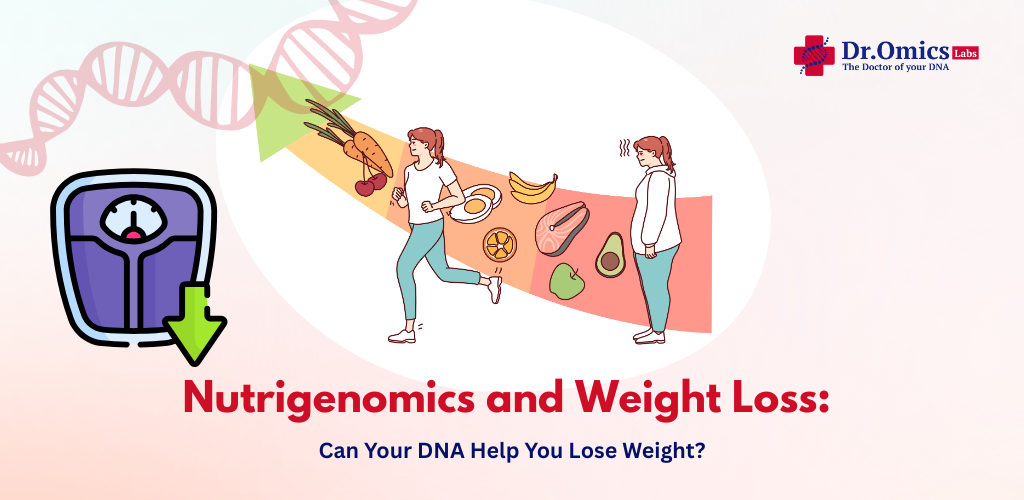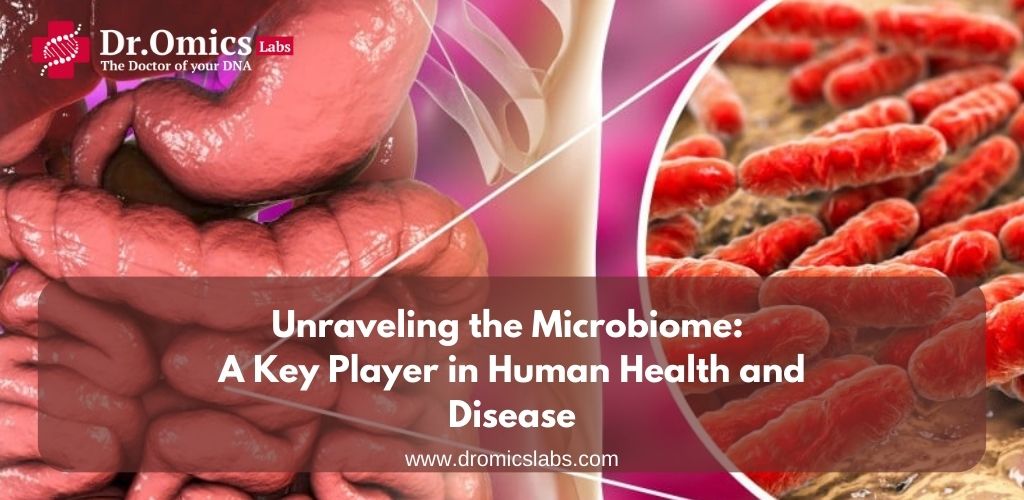Nutrigenomics and Weight Loss: Can Your DNA Help You Lose Weight?
Modern diets often feel like a game of trial and error. You cut carbs, try keto, switch to high-protein, then hop on a juice cleanse—only to regain lost weight or feel worse than before. The truth is, generic weight loss plans rarely consider one crucial variable: your DNA.
Enter nutrigenomics, the science studying how food interacts with your genes. It doesn’t just ask what you eat—but how your genes handle what you eat. Could your DNA be the key to sustainable weight loss? Let’s break it down.
What Is Nutrigenomics?
Every individual has a unique genetic code that shapes not only how we look, but also how we metabolize food. Nutrigenomics investigates the complex gene-nutrient interactions that influence nutrient absorption, fat storage, and even hunger signals (1). Unlike conventional diets, which are one-size-fits-all, nutrigenomics pushes the boundary by aiming for a gene-based diet—where your plate is tailored to your biology.
This approach considers polymorphisms, small genetic variations, which can affect everything from how you metabolize caffeine to how you respond to dietary fats. By analyzing these SNPs (single nucleotide polymorphisms), healthcare professionals can make smarter, DNA-driven nutritional recommendations (6).
Why Weight Loss Isn’t Working for Everyone
Weight loss isn’t just about willpower. Global obesity rates continue to rise, and a major reason is that many people are unknowingly fighting their own genetic programming (3). Studies show even minor calorie excesses—just 100 extra kcal/day—can lead to a 15 kg weight gain over a few decades. The problem compounds when diets fail to align with individual biology.
Moreover, while behavioral interventions can lead to short-term weight loss, maintaining that weight loss often proves far more difficult. Long-term success demands more than just calorie counting. It requires understanding why the body holds on to fat in the first place—and that’s where nutrigenomics steps in (3).
The Science Behind DNA-Based Diets
Recent clinical research supports the idea that genetic-based diets may offer measurable benefits. In a controlled study, individuals were classified as “fat-responders” or “carb-responders” based on their genetic profiles. Some were placed on diets aligned with their genotype, while others weren’t. Although the weight loss differences weren’t dramatically significant over 12 weeks, the trial opened the door to more refined approaches in longer studies (2).
Another study went a step further. Researchers compared obese patients following gene-based diet plans to those on standard plans. After four months, the nutrigenomics group showed significantly better outcomes—not just in weight loss, but also in cholesterol, triglyceride levels, and fasting glucose control (4). This clearly indicates that personalized diets may outperform generic prescriptions in more than just weight loss.
DNA Testing for Weight Loss: Hype or Help?
A genetic weight loss test might sound like a luxury fad, but it has a functional core. Nutrigenetics—one subset of nutrigenomics—examines how your body processes carbs, fats, and proteins based on your genotype. For example, some people carry variants that make them poor metabolizers of fats, meaning a high-fat diet could actually increase fat storage. Others have genetic traits that impair insulin sensitivity when on high-carb diets (5 ,6).
What’s even more compelling is the psychological side. People tend to show greater compliance when their diet is based on genetic results. It’s no longer a random struggle but a strategic plan. One study showed that patients receiving nutrigenetic advice felt more motivated and stuck to their diets longer (3). That’s a win for both science and sustainability.
Is It Just About the Genes?
Not quite. While your genes set the framework, your lifestyle writes the story. Nutrigenomics doesn’t dismiss the basics—calorie control, physical activity, and sleep—but it enhances them with insights at a molecular level. Think of it as upgrading your weight loss strategy from guesswork to precision management (1).
In fact, nutrigenomics doesn’t work in isolation. It integrates multiple layers of biological data—transcriptomics, epigenetics, proteomics, and metabolomics—to understand how your body truly functions (1). This is why it’s a powerful tool not only for weight loss but also for preventing metabolic diseases like Type 2 diabetes and cardiovascular disorders (5).
The Future of Weight Loss: Precision, Not Popularity
The promise of personalized nutrition for weight loss lies in its precision. Instead of cycling through the latest trends, people can finally use their own biology to find what works best for them. While research is ongoing and long-term studies are still catching up, the early evidence is promising. We now know that weight loss isn’t just about eating less—it’s about eating smart, according to your genes.
Gene-based weight management isn’t magic—but it’s definitely a leap beyond outdated calorie math. And as genome-wide technologies become more accessible, what once sounded futuristic may soon become standard care for obesity and metabolic health (6).
Final Thought
In the end, nutrigenomics weight loss isn’t a miracle pill. It’s a smart strategy rooted in biology, not buzzwords. If you’ve been struggling with diets that don’t deliver, maybe it’s time to listen to your genes. Because sometimes, the secret to losing weight isn’t out there in a fad diet—it’s inside your DNA.
References:
- Kiani, A. K., Bonetti, G., Donato, K., Kaftalli, J., Herbst, K. L., Stuppia, L., Fioretti, F., Nodari, S., Perrone, M., Chiurazzi, P., Bellinato, F., Gisondi, P., & Bertelli, M. (2022). Polymorphisms, diet and nutrigenomics. PubMed, 63(2 Suppl 3), E125–E141. https://doi.org/10.15167/2421-4248/jpmh2022.63.2s3.2754
- Höchsmann, C., Yang, S., Ordovás, J. M., Dorling, J. L., Champagne, C. M., Apolzan, J. W., Greenway, F. L., Cardel, M. I., Foster, G. D., & Martin, C. K. (2023). The Personalized Nutrition Study (POINTS): evaluation of a genetically informed weight loss approach, a Randomized Clinical Trial. Nature Communications, 14(1). https://doi.org/10.1038/s41467-023-41969-1
- Arkadianos, I., Valdes, A. M., Marinos, E., Florou, A., Gill, R. D., & Grimaldi, K. A. (2007). Improved weight management using genetic information to personalize a calorie controlled diet. Nutrition Journal, 6(1). https://doi.org/10.1186/1475-2891-6-29
- Lakshmi, D. S., Bhawna, S., Junaid, A. K. G., Abinaya, S., Katherine, S., Ishita, L., Geetika, A., Hetal, G., Swetha, D., Dhivya, B., Akshada, K., Raunaq, S., Aarthi, R., Balamurali, A., & Rahul, R. (2024). Unlocking weight loss potential: Investigating the impact of personalized nutrigenetic-based diet in an Indian population. AIMS Molecular Science, 11(1), 21–41. https://doi.org/10.3934/molsci.2024002
- Türkmen, İ. (2024). Personalized Nutrition in Managing Metabolic Disorders: The potential of DNA-Based Diets. Next Generation., 8(1), 63. https://doi.org/10.62802/pr959356
- Ramos-Lopez, O., & Martinez, J. A. (2019). Nutrigenetic approaches in obesity and weight loss. In Elsevier eBooks (pp. 409–415). https://doi.org/10.1016/b978-0-12-819178-1.00040-x




